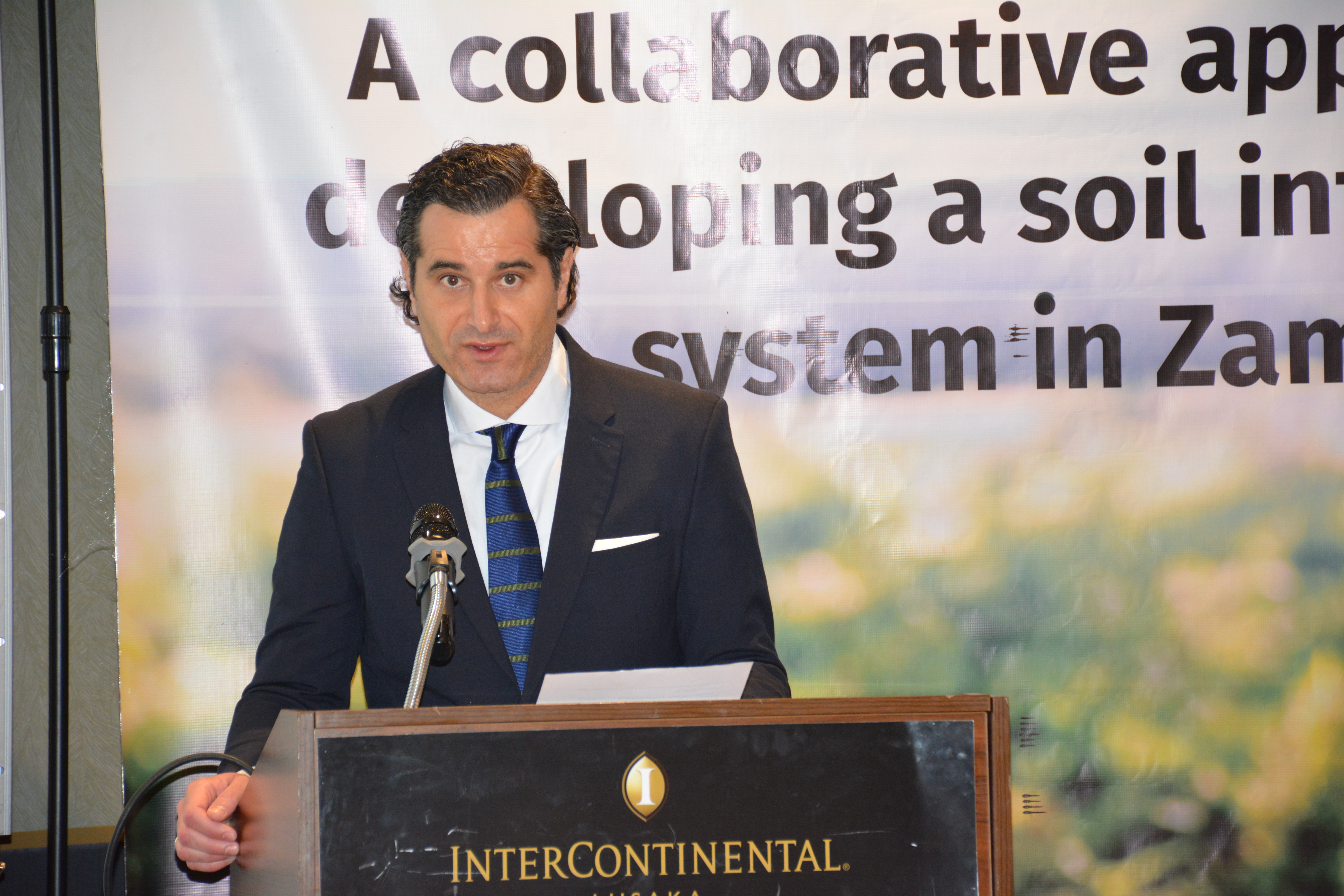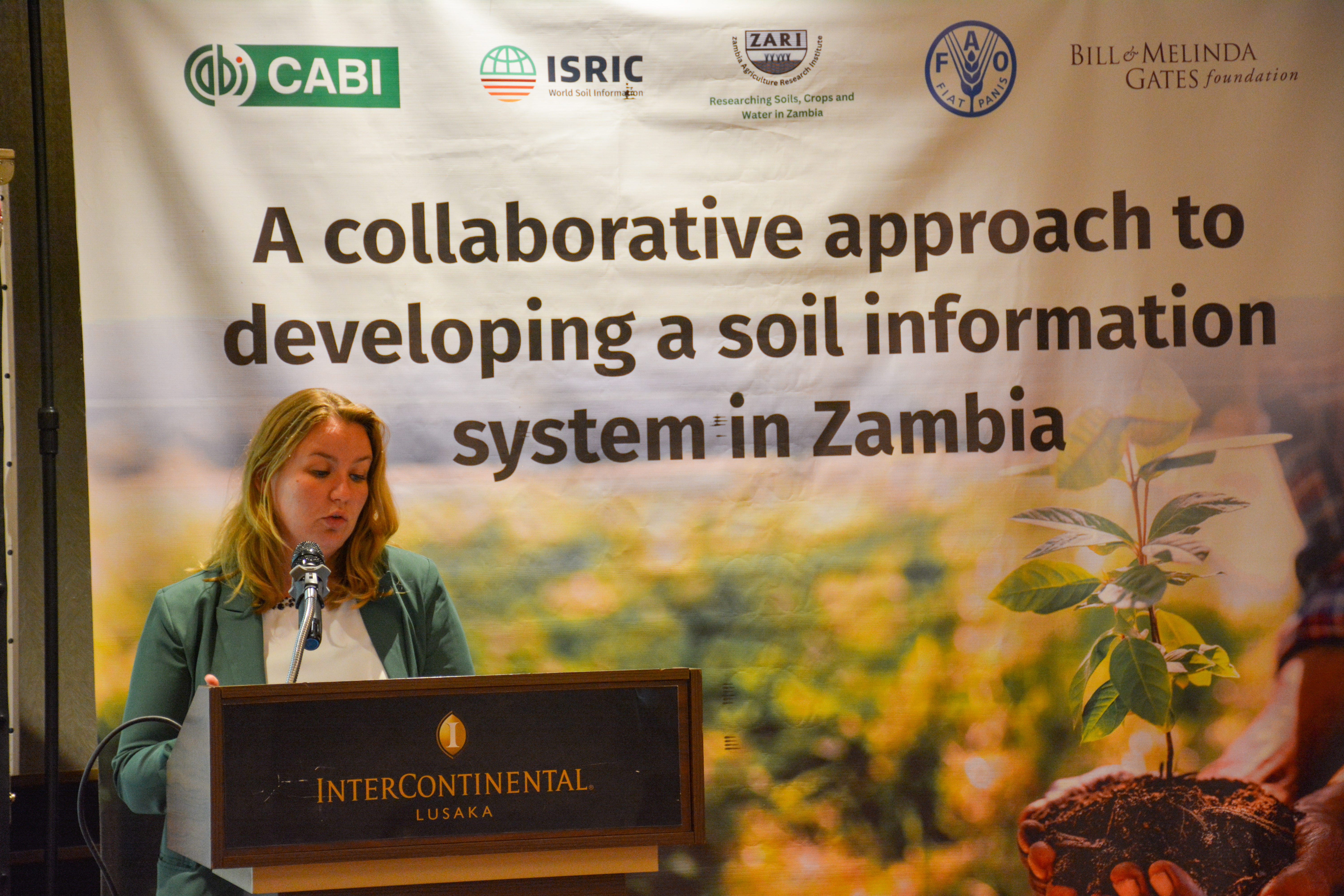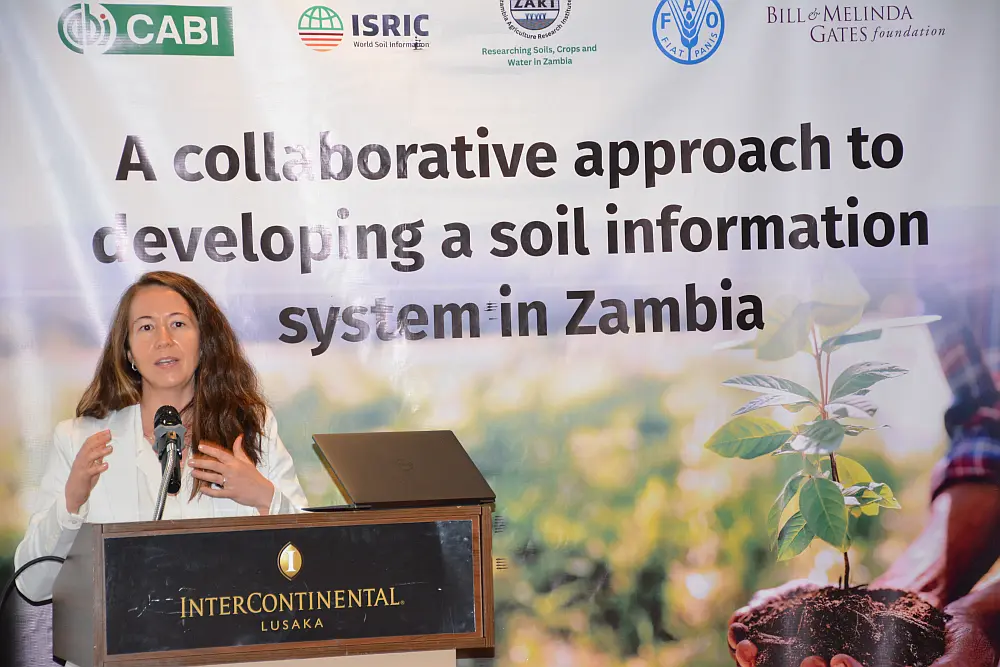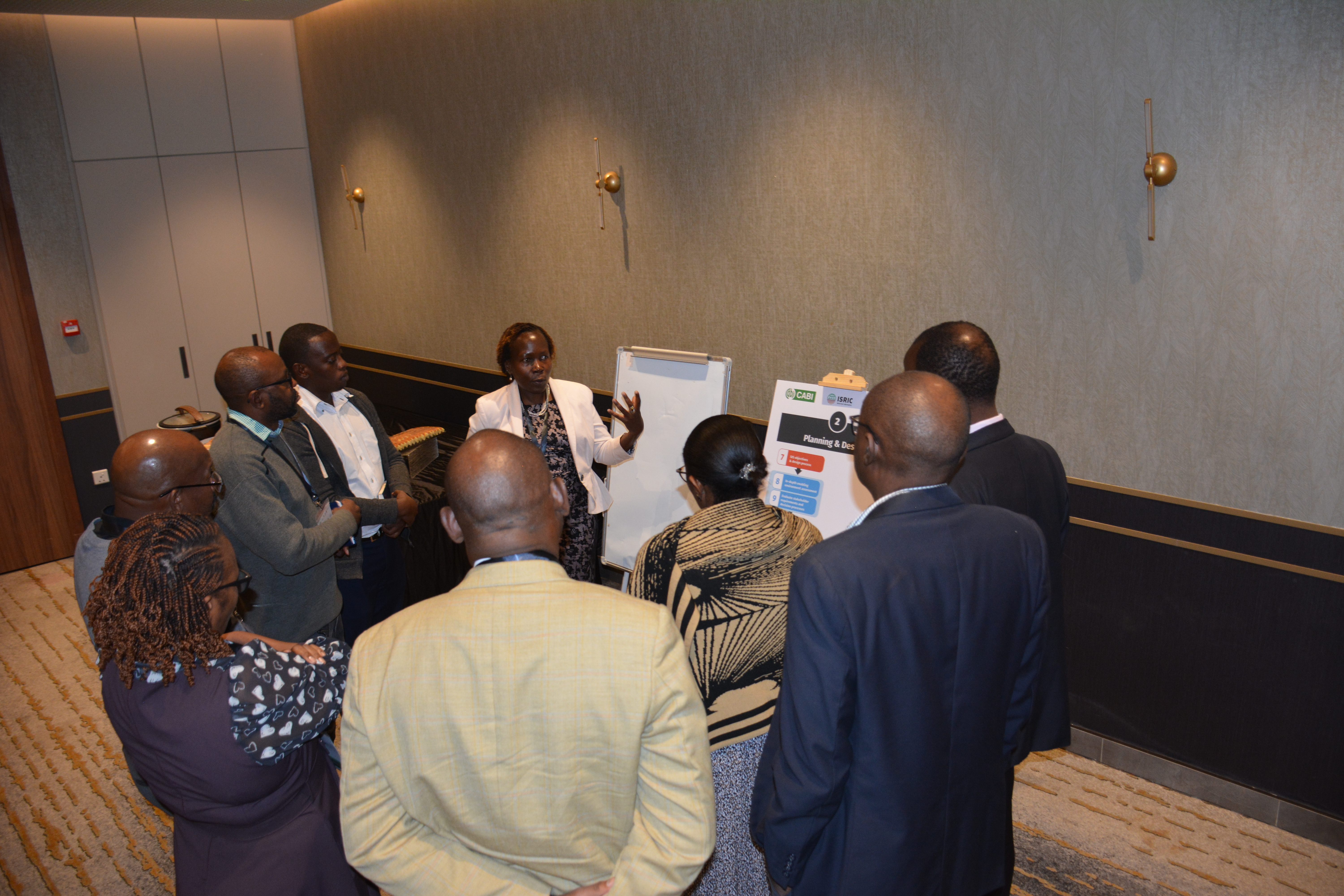On 17-18 April 2024, CABI, ISRIC – World Soil Information, the Zambia Agriculture Research Institute (ZARI) and the Food and Agriculture Organization of the United Nations (FAO) held a two-day workshop on soil information systems in Lusaka, Zambia. The event was part of a Bill and Melinda Gates Foundation-funded project designed to strengthen national soil information systems.
The workshop brought together policymakers, soil information producers and users. During the workshop, the participants discussed and provided suggestions for improving a framework for developing Soil Information Systems (SIS) which had been developed by CABI and ISRIC. The framework formed the basis for the group discussions and the insights from participants will inform the development of a roadmap for designing and implementing a SIS in Zambia.
Zambia and the need for a national soil information system

Although there have been previous attempts to create one, no national soil information system currently exists in the country. Professor Lydia Chabala, a Lecturer at the University of Zambia, explained why such an initiative is urgently needed:
“We need a soil information system in Zambia because currently our information on soil is fragmented and it is difficult to quickly access it for decision-making and as we know everything begins and ends in the soil. We need a SIS to inform policymakers and decision makers so that they can make decisions about national food security and climate regulation. These issues are central to human development.”
CABI’s Alvaro Valverde officially began proceedings by welcoming attendees and providing an overview of the plans for the two days. Dr Noah Piri of CABI talked about the importance of best practice in the development of soil information systems. Prof Tomas Reznik then discussed the SLIM project and its links to ZamSIS. Also discussed in the presentations was the Soil Mapping for Resilient Agrifood Systems (SoilFER) project in Zambia by FAO – an initiative to use soil information to guide policy making both at national and field levels – and how the work is linked to the development of ZamSIS.
Improving national soil information systems
After the introductory session, Dr Mariah Coley, a CABI associate, and Thaïsa van der Woude, a project coordinator at ISRIC, presented the research conducted by the project team on national soil information systems. After explaining the background behind the SIS review project, van der Woude outlined ISRIC’s soil information workflow, which was created by identifying and documenting the methods, standards, and tools available for soil data and information development.

Dr Coley then described the key takeaways from consultations in nine countries, a process which involved desk research and original data collection through 13 semi-structured interviews with SIS developers. After this, Dr Coley explained the social factors, institutional arrangements, funding dynamics, and technical and infrastructural capacities that enable the successful establishment of a SIS and how these findings could relate to Zambia.

The researchers then described the three stages of a framework for a national soil information system: initiation, planning and design, and implementation. An overview of these stages was synthesised into poster format, and the attendees gave feedback as part of the breakout sessions.
Towards a roadmap through stakeholder engagement

On both days of the workshop, breakout sessions took place between the presentations. The moderators facilitated discussions with the participants to validate existing information gathered by ZARI, ISRIC, SoilFER/FAO and CABI, as well as to examine assumptions and fill information gaps.
Towards the end of Day 2, attention turned to the roadmap and discussions explored next steps in the process of developing ZamSIS, such as the key actors and organisations that need to be involved as well as potential timeframes. Conversations also focussed on which funders will be needed to ensure the financial sustainability of a SIS in Zambia.
Discussing how the findings from the two days can be taken forward, Dr Lydiah Gatere of CABI said: “Now we will be able to refine and improve the framework for a soil information system for Zambia and also use this work to help other countries who are in the process of establishing a SIS, such as Kenya and Ghana, create their own roadmaps”.
Moving forwards
The project team will be holding the second project workshop in the coming months. This time the team will engage with key stakeholders in Kenya, another country without a SIS but where there is considerable need and demand for one. CABI will publish a project report providing new evidence for a SIS development framework designed to accompany a recent ISRIC publication.


